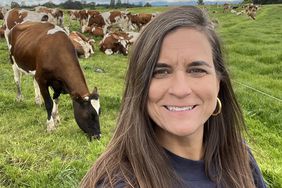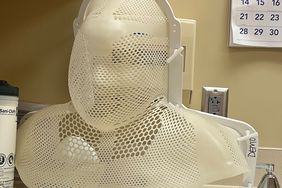:max_bytes(150000):strip_icc()/IMG_6350281429_0-2000-ceea683bbd6b4ba28fbfe96df908b44d.jpg)
When shopping for your Thanksgiving turkey, there are several brands available in grocery stores, and they each come covered in marketing terms.
As a mom, I want to buy healthy, safe food for my family. All these statements can be confusing. What do they mean? Is a product that has these claims more nutritious or safer than one that doesn't?
I've had the chance to tour several turkey farms. I've visited a turkey processing plant. I've talked to professionals who develop food products using turkey. Because of this I've been able to ask farmers, veterinarians, turkey nutritionists (think of them as registered dietitians for turkeys) and other people in the food system questions.
North Carolina trails only Minnesota in raising turkeys, so our farmers have plenty of experience raising these birds.
Here are six claims I found on turkeys at the grocery store and what I learned about them.
1. No hormones or steroids
It's important to remember that every living thing has hormones. I have them, you have them, turkeys have them. No living thing is "hormone free."
It has been illegal to give hormones or steroids to turkeys, chickens, or other poultry since the 1950s. There are no hormones approved by the Food and Drug Administration for use in turkey. (By the way, it is also illegal to give hormones or steroids to pigs.)
When you see this statement, it's usually followed by an asterisk or other symbol. If you search the package you will find, usually in very small print, the following statement:
"Federal regulations prohibit the use of hormones or steroids in poultry."
The takeaway on this claim? ALL poultry is free of added hormones or steroids, regardless of whether the label says so.
2. Cage-free
I've been to two turkey finishing farms – and there wasn't a cage in sight. The birds are raised in large, temperature-controlled houses. They have plenty of room to move. Inside the barn they are kept safe from predators, cool in the summer, warm in the winter, and dry in bad weather. They always have access to fresh water and feed. All turkeys raised for market are raised cage-free.
:max_bytes(150000):strip_icc()/turkeys20in20house-2-2000-d2543f4cc5f64e4289d6c0ecdd539b1d.jpg)
3. Antibiotic-free or No antibiotics ever
All poultry sold is antibiotic-free. Any animal given antibiotics must have met the medicine's withdrawal period, or the legally required time between when the medicine was given and when the animal is harvested.
Farmers give approved antibiotics for three reasons: to treat a sick bird, to treat illness in the entire flock, or to prevent disease. The Food and Drug Administration (FDA) approves all antibiotics used in livestock.
No antibiotics are kept on the farm. If a farmer has sick birds, a veterinarian evaluates the animals and writes a prescription if needed.
This summer I toured a "No Antibiotics Ever" farm. Truthfully, it looked like the other farms I'd visited. The difference is these birds never receive an antibiotic. If they get sick and must receive antibiotics, they are taken out of the program and used in other products.
4. No growth-promoting antibiotics
This statement had me scratching my head because antibiotics and hormones are not the same. As I said earlier, antibiotics are given to sick animals to make them healthy or for preventive reasons. Healthy birds eat and drink more than sick birds, so of course they gain more weight.
Some companies no longer give antibiotics to prevent disease, but they do give medication to sick birds. This resource from Minnesota Turkey has detailed information on antibiotic use in turkey.
5. Vegetarian fed
In the wild, turkeys eat fruits, nuts, leaves, seeds, and insects (and each other). They aren't naturally vegetarians, nor are the birds raised on farms. Nutritionists develop a recipe for vegetarian feed that meets the protein needs of the bird's stage of life and is something they will eat. (Yes, turkeys can be picky eaters.) This feed is more expensive, and it takes longer for birds on this diet to meet market weight. That's why turkey with this label is more expensive on the grocery shelf.
6. Family farmed
Both farms I toured were owned by independent family farmers. They have a contract with a company and raise birds for that company. The farmer owns the land and buildings. They take care of the birds, which are owned by the company. The company provides the birds, feed, and support (veterinarians, nutritionists, other professionals). This is a model used in turkey, chicken, and pig farming. One turkey company I talked to has contracts with over 300 family farms to raise turkeys for the company. If you look at all agriculture, 97% of farms in the U.S. are family farms.
So why are these claims on the label? The reason is marketing. They want me to buy their product. If one company puts the fine print on its label, it can make it look like the other companies aren't doing the same thing. That one statement may convince me to buy that product, sometimes paying more because I think it's better . . . when it's not.
After talking to a turkey farmer and to other people directly involved in the industry, I feel more confident in choosing my Thanksgiving turkey.






